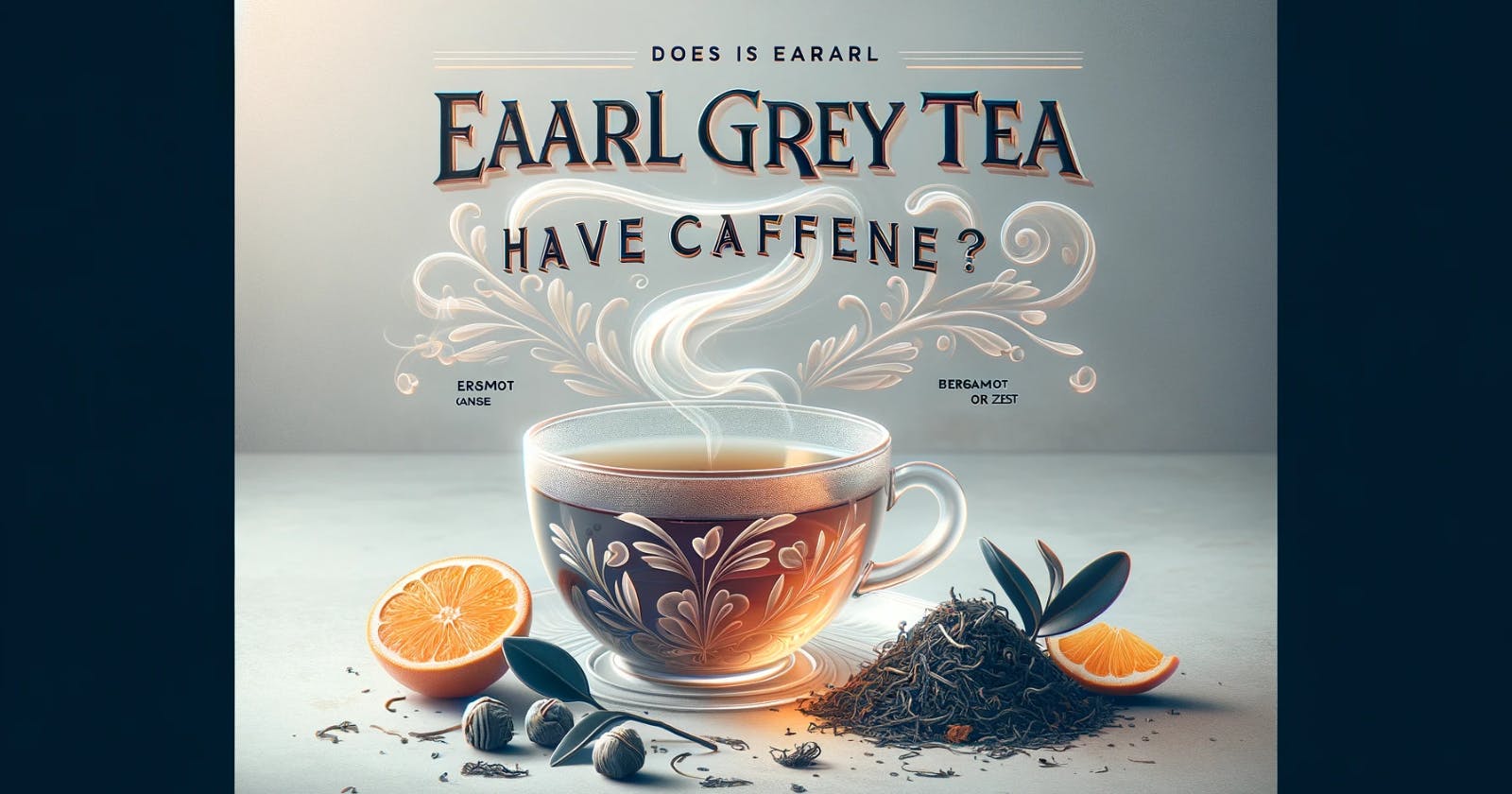Do you enjoy the distinctive flavor of Earl Grey tea? This aromatic black tea blend is a favorite among tea lovers worldwide. But have you ever wondered if Earl Grey contains caffeine?
The simple answer is yes, it does. However, there's more to explore regarding the caffeine content of this popular beverage.
Let's get into the details and understand why Earl Grey tea has caffeine and how it compares to other teas and caffeinated drinks.
What is Earl Grey Tea?
Earl Grey is a black tea flavored with the oil from the rind of bergamot oranges. This unique blend originated in the early 19th century and was named after Charles Grey, the 2nd Earl Grey and British Prime Minister.
The bergamot essence gives Earl Grey its signature citrusy aroma and taste, making it a beloved choice for tea enthusiasts.
Source of Caffeine in Earl Grey Tea
Like all true teas (black, green, white, and oolong), Earl Grey tea is made from the leaves of the Camellia sinensis plant. This plant naturally contains caffeine, a stimulant found in various plants, including coffee beans, cocoa beans, and tea leaves.
Therefore, Earl Grey tea inherits its caffeine content from the black tea leaves used in its production.
Caffeine Content in Earl Grey Tea
The caffeine content in Earl Grey tea can vary depending on several factors, such as the specific tea variety, brewing time, and serving size. Generally, a cup of Earl Grey tea (8 oz or 237 ml) contains around 47 mg of caffeine.
However, this amount can range from 25 to 60 mg per cup, depending on the factors mentioned above.
Factors Influencing Caffeine Content
H3: Several factors can influence the caffeine content in Earl Grey tea:
Tea leaf variety: Different tea leaf varieties can have varying natural caffeine levels.
Brewing time: The longer the tea is brewed, the more caffeine is extracted from the leaves.
Serving size: A larger serving of tea will contain more caffeine compared to a smaller serving.
Tea bag vs. loose leaf: Loose-leaf tea typically contains more caffeine than tea bags due to the larger surface area of the leaves.
Comparison with Other Caffeinated Beverages
To put the caffeine content of Earl Grey tea into perspective, let's compare it with some other popular caffeinated beverages:
Brewed coffee (8 oz): 95 mg of caffeine
Espresso (1 oz): 63 mg of caffeine
Cola (12 oz): 34 mg of caffeine
Green tea (8 oz): 28 mg of caffeine
As you can see, Earl Grey tea falls somewhere in the middle, containing less caffeine than coffee but more than green tea and most sodas.
Conclusion
In summary, Earl Grey tea does indeed contain caffeine due to its black tea base. While the exact amount can vary, a typical cup of Earl Grey tea provides a moderate dose of caffeine, suitable for those seeking a gentle pick-me-up without the intense effects of coffee.
Whether you enjoy Earl Grey for its unique flavor or its mild caffeine boost, this beloved tea remains a cherished choice for tea lovers worldwide.

